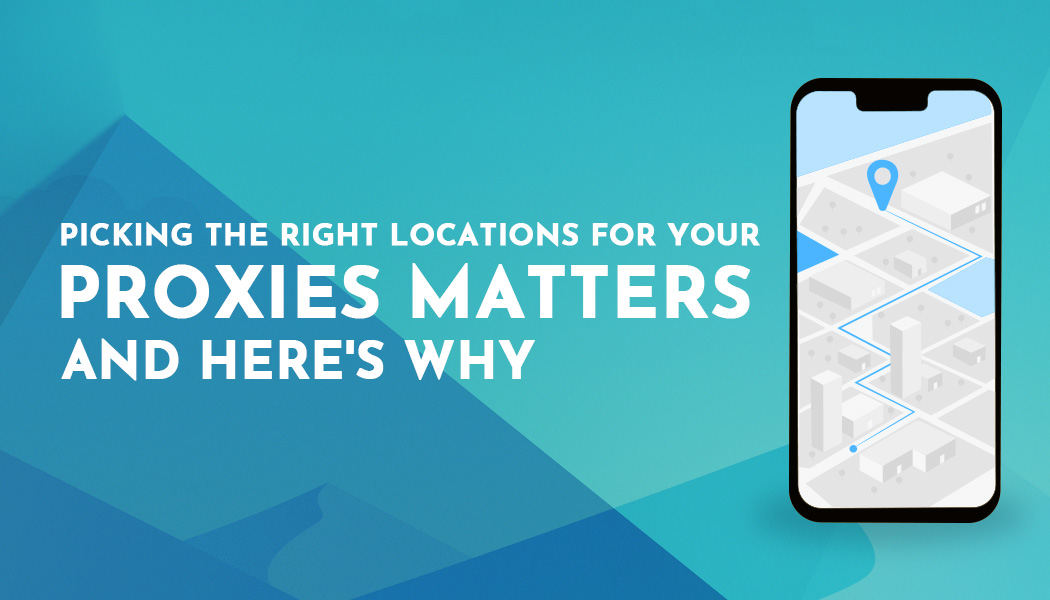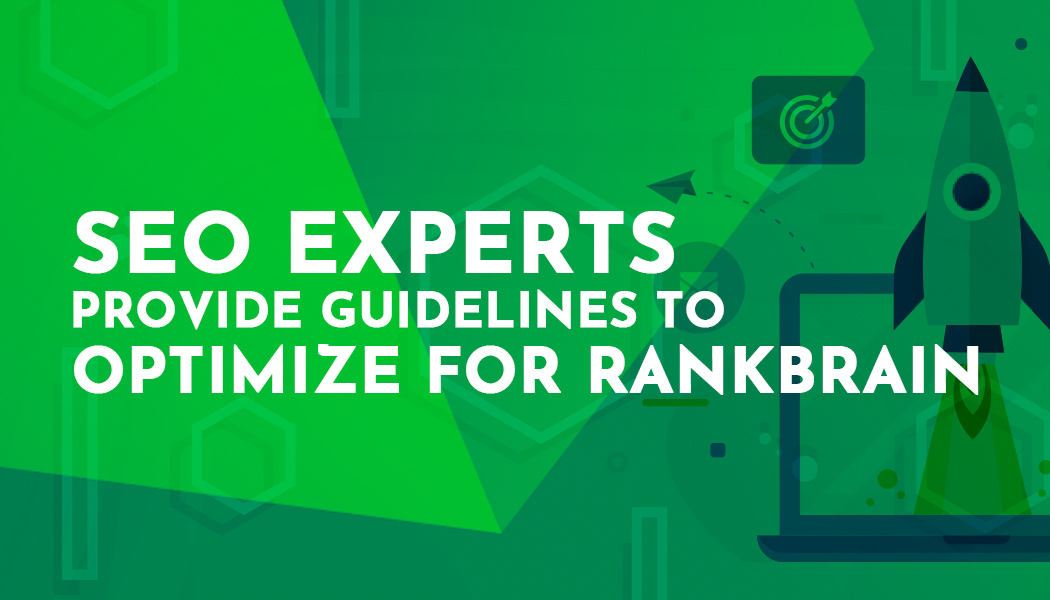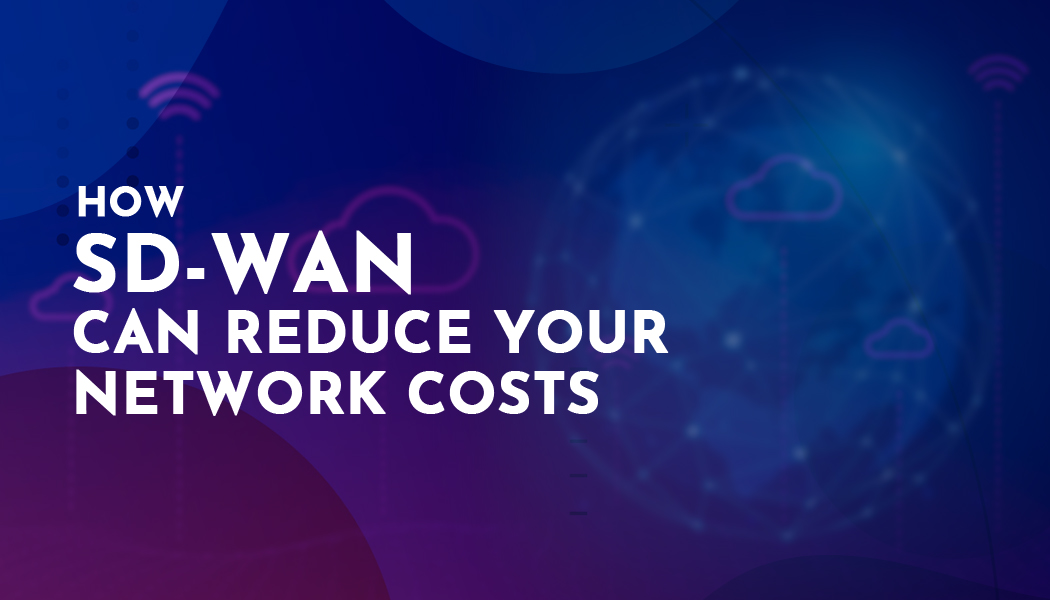Picking the Right Locations for Your Proxies Matters and Here's Why
When connecting to the internet through a proxy provider, many will assign you an IP from a random location. Typically, this means they'll connect you through a developing country, like India or Indonesia. This is fine if you're using the internet for basic online activities, like browsing. But not being able to choose your proxy's location is a major issue when conducting location-sensitive activities. Your proxy’s location also influences your connectivity in other ways. Here we’ll discuss why location is important and it influences your connectivity.
The Closer the Proxy, the Lower the Latency
There are two factors that influence connection speed: bandwidth and latency. Bandwidth is the throughput of your connection – think of it as how “wide” your connection is. This is usually advertised as how many megabytes-per-second a connection is. Naturally, the bigger the bandwidth of your connection, the more data you can send at a time.
Latency is the time it takes for data to travel from sender to receiver. This includes the processing time at the receiver’s end. Latency is dependent on physical distance. The farther away your proxy is from the end server, the longer it takes for data to go back and forth between them.
No matter how big your bandwidth is, you will still suffer from high latency and slow response times if your proxy is physically far from the server. In time-sensitive cases, like ticket queuing, a low response time is more important than how much data you can send at once.
There is no cheat code or miracle technology for lowering latency. You must have a proxy location that is physically closer to the server.
Faster Speeds Mean Better Overall Performance
Having a lower latency also affects the performance of your systems as a whole. Say, for example, you have a web scraper monitoring and extracting data from a website in Tokyo. Your latency to the website will be quite high if you’re connecting through a low-quality proxy in India. For each request you make to the website, it takes more time for the data you’re asking for to be sent back than if your proxy was in South Korea or inside Japan.
Now, imagine the effects of high latency on an advanced web scraper that makes hundreds of requests per hour! The closer your proxy is to the server you’re connecting to, the faster requests are processed, meaning you can make more requests in a day. Overall system efficiency is improved.
Geo-Targeting Proxies
Geo-targeting is the practice of filtering a service or content based on geographic location. In the case of proxies, geo-targeting allows the user to select a list of locations that they want to connect through. The proxy service provider will then only assign IPs from a pool of addresses from those locations.
If you’re involved in location-sensitive activities, you’ll want a proxy provider that can offer geo-targeting. Pay attention to how specific their geo-targeting is. Make sure that it's appropriate for your business needs. For instance, it's important to know whether you have to connect through a specific city or if a location in the same country is enough. The more options at your disposal, the better, but you have to do your research to make sure you’re not spending money on features you won’t be using.
Examples of Why Proxy Location Matters
So, we've learned that physical location affects speed and performance. You can find information on pricing here for proxies from almost every location in the world.. Now look at a few use cases of activities that are highly dependent on location.
Sneaker Copping
Sneaker copping is the practice of purchasing sneakers online. Sometimes sneakers release in a limited run or for short periods of time throughout the year. Sneakerheads use proxies so they can be among the first ones to make an order. The closer their proxy is to the shoemaker's website, the faster their order is processed. They compete with buyers from across the globe, so low latency is key to securing an order.
Sometimes the shoemaker sets limits on the number of items a single user can buy. Buyers use proxies to get around this restriction, appearing as many users.
Bypassing Regional Restrictions
If you're living in a country that blocks Netflix, you might have used a proxy or VPN to watch your favorite shows. Proxies bypass regional restrictions by making you appear as if you're connecting from another country.
Sometimes content is only available in a certain country. Having the freedom to choose which proxy location to connect through grants you free access to this content.
SEO Analysis
SEO analysis is a key part of any modern business with an online presence. You want to stay in-the-know about how your business ranks in the different markets you target. Geo-targeting allows you to see exactly what a user living in that location would see in an internet search. If you sell clogs in Norway, it's important to be able to pick a proxy located in Norway. That way you can see how your website ranks and what Norwegians think about your product.
This is just as useful at the city level. Search engines deliver content to their users based on where they live. This level of specificity even goes down to the street they live on. If you want to learn what key terms are trending in certain cities, you use geo-targeting.
Summing It All Up…
Having the freedom to choose the location of your proxy is important if you're conducting any activity dependent on location. Not only does your location affect the content you see, it also affects connection speed and overall system performance.




